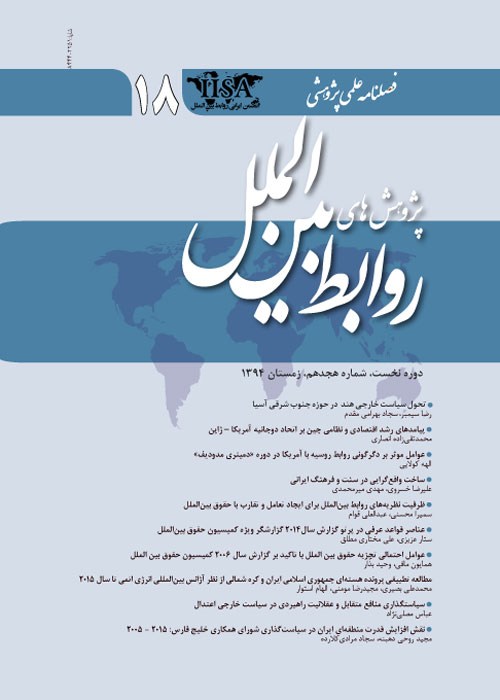Political - Security Pathology of Kurdistan Province from the Perspective of New Institutionalism
Ethnicity has had important role in socio-political developments in 21 century. This role has been obvious in underdeveloped and developing countries and developed countries. The purpose of this research is to analyze the relationship between the security-political vulnerabilities of this province and Iran's limited access order and to provide solutions within the framework of institutionalism to maintain and increase security in this province. Using the descriptive-analytical method and the methodological-theoretical approach of institutionalism with an emphasis on the limited access orders, this article seeks to answer the question that from the perspective of the theory of institutionalism, what is the relationship between Iran's limited access order and the security and political vulnerabilities of Kurdistan province? The findings of the article indicate that Iran's limited access system by negatively affecting economic, political and social indicators causes its security and political vulnerabilities, and not paying attention to the improvement and promotion of these indicators can escalate the security threats of the province and endanger national security.
- حق عضویت دریافتی صرف حمایت از نشریات عضو و نگهداری، تکمیل و توسعه مگیران میشود.
- پرداخت حق اشتراک و دانلود مقالات اجازه بازنشر آن در سایر رسانههای چاپی و دیجیتال را به کاربر نمیدهد.



